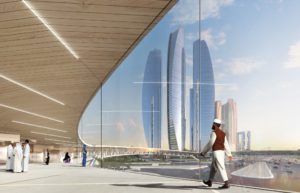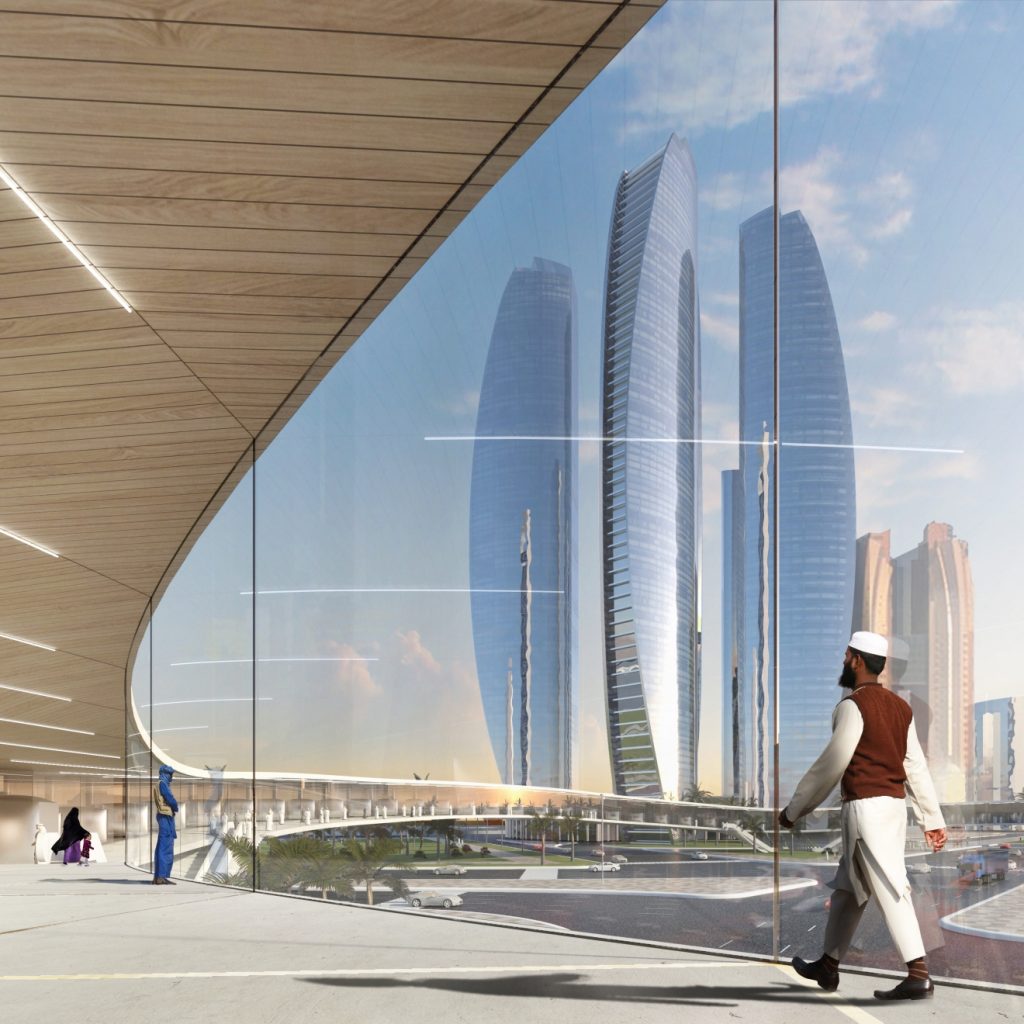Pipe Dreams?
How the UAE is positioning itself at the forefront of the Hyperloop revolution
The possibility of transporting goods and people around the UAE via high speed Hyperloop is closer to reality following a string of breakthrough deals involving a US developer of the technology with government backed firms and agencies.
The concept which involves a low-pressure tube through which levitating pods can travel at up to 1,200 km/h has been gaining traction and a number of projects have been proposed all over the w orld. However recent developments suggest the UAE is determined to be at the forefront of a technology that could prove to be a game changer in the transportation sector.
orld. However recent developments suggest the UAE is determined to be at the forefront of a technology that could prove to be a game changer in the transportation sector.
In October Dubai-based global port operator DP World announced a major investment in Hyperloop One that will provide backing for the continued research needed to propel the technology forward. The move follows a Memorandum of Understanding penned between by the two companies in August to carry out feasibility studies for using Hyperloop systems in the UAE. Phase 1 has an initial focus on moving containers from ships docked at DP Worlds flagship Jebel Ali Port via the Hyperloop system to a new inland container depot in Dubai.
This is an opportunity to help transform the UAE from a technology consumer to a technology creator
Last month the Elon Musk-backed company agreed to carry out a detailed feasibility study in conjunction with McKinsey & Co. and the Bjarke Ingels Group (BIG) for Dubais Roads and Transport Authority (RTA). Director General & Chairman of the Board of Executive Directors of the RTA, H.E. Matter Al Tayer, made it clear that the deal aims to position the UAE as a pioneer of Hyperloop technology.
This is an opportunity to help transform the UAE from a technology consumer to a technology creator, incubating expertise for a new global industry, in line with the UAEs Vision 2021, he said. With Hyperloop One, we will create a new means of transportation, keeping our region at the forefront of transportation technology and innovation.
Its exponents says the benefits of Hyperloop technology include higher standards of safety than a passenger jet, lower build and maintenance costs than high-speed rail, and energy usage, per person, that is similar to a bicycle.
Rob Lloyd, CEO of Hyperloop One, says recent developments have advanced things to t he stage where, from a technological point of view, a Hyperloop system could be built in the UAE in the next five years. Our agreement with the RTA is the biggest step yet towards achieving this goal, he said at the announcement of the deal with the RTA.
he stage where, from a technological point of view, a Hyperloop system could be built in the UAE in the next five years. Our agreement with the RTA is the biggest step yet towards achieving this goal, he said at the announcement of the deal with the RTA.
Engineers, architects and designers from Hyperloop One and Bjarke Ingels Group have also collaborated to design an integrated Hyperloop system for the UAE that includes routes between Abu Dhabi and Dubai, several Hyperports (the equivalent of a station or airport) throughout Dubai, and the conceptual interiors and exteriors of the individual passenger pods and autonomous vehicles.
The work is based on a detailed study of how an urban and inter-city transport network should integrate with the existing infrastructure. Its autonomous, point-to-point and vastly simplifies the experience of getting from your front door to your destination.
By making autonomous vehicles an integral part of the development of the Hyperloop One system, we are introducing the idea of seamless, uninterrupted end-to-end mobility, said Josh Giegel, Hyperloop Ones President of Engineering. Imagine stepping out of your villa in Dubai, into a self-driving vehicle that resembles your living room, and arriving just 48 minutes later at your office in Riyadh. That is what Hyperloop One can deliver.





